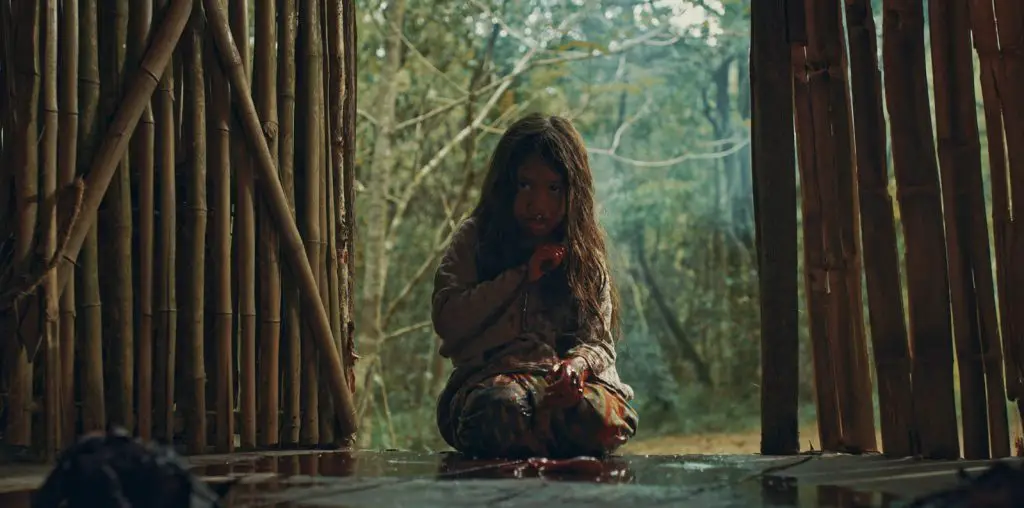
I’m pretty sure that the character doing the voice-over throughout this movie has more lines off-screen than he does on. This is not a good thing.
Originally released in 1995, watching “The Last Fair Deal” is like opening a post-Tarantino era time capsule that contains a mediocre facsimile of an early “Reservoir Dogs” rip-off.
It opens with a botched gas station robbery that sets our criminally-minded band of brothers a few years back on their 5-year plan. Luckily for them, they happen to know a wizened old criminal (played by executive producer L.M. “Kit” Carson) that’s willing to give them another shot at their dream… which is to get rich by robbing a bank. And rob a bank they do. But then they have to launder(!) the money. WTF?! They only stole about $60,000… divided five ways. That plot point aside, the rest of the movie involves their unsuccessful attempts to enjoy their new-found wealth, culminating in a double-cross that leaves just one brother standing. I’m not sure what the last fair deal was, though.
But I’m trying to be positive this week, so let’s focus on what’s good about this movie.
Contrary to the running time listed on IMDB, the movie is really only 72 minutes long. But that’s not all. The copyright date following the credits on the dvd (2002) is different than the one listed on IMDB (1995).
Two different release dates. Now this is getting interesting…
Maybe the reason this movie is so amateurish is because the studio hacks got a hold of it sometime during that 7-year period, re-cut it and then re-released it to the public in 2002, hoping to milk a few more dollars out of what was obviously a cash cow 7 years earlier. But this was an independent film, so maybe that’s not the answer. There’s got to be a director’s cut out there on a shelf somewhere that contains the missing 29 minutes of Charles Solomon Jr.’s vision that will fill in the plot holes, remove the near-constant voice-over narration and restore this film to its former glory through a painstaking assemblage of all extant pieces… Somebody call Criterion!
Whatever the truth may be, I’d wager that it’s probably more interesting than either version of this warmed over slice of Texas toast neo-noir.
The voice-over narration is intrusive and does little to add to the overall value of the narrative. The acting is spotty and the script leaves little for the cast to work with. The direction by Charles Solomon Jr. is serviceable, at best, and the cinematography by Bill Schwarz is as muddy as a Texas river (okay, that’s the last Texas-themed comparison I’ll make).
Confidential to Whom It May Concern: You misspelled the name of one of the screenwriters, who also happens to be a credited actor in your film, on the back of the dvd case.
